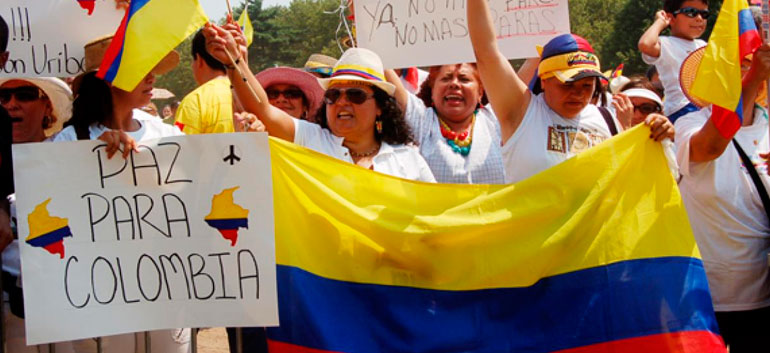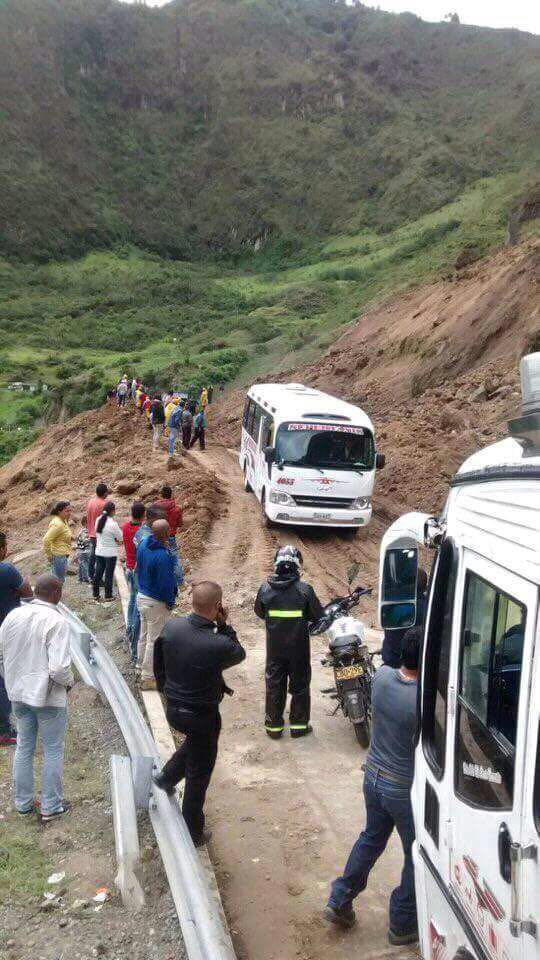Recicladores and rubbish collectors are on the frontline too.

Colombia generates approximately 11.6 million tonnes of municipal solid waste annually which is equivalent to 31,700 tonnes per day. The majority of this waste ends up in landfill sites, due to the absence of waste processing plants in most of the municipalities. The operations and management of landfill facilities and end disposal sites have often been controversial in the country.
The infamous landfill of Doña Juana in Bogotá receives over 6,900 tonnes of waste daily and had a major slope failure in the last week of April, right in the middle of the health emergency. This resulted in a spillage of over 60,000 tonnes of waste causing an environmental and health risk to the neighbourhoods in the south of the city.
The average recycling rate in the country, however, is about 17%, thanks to the informal recyclers who make the biggest contribution to this.
The current COVID-19 pandemic has put health and sanitation workers on the frontline because waste management is a critical service. The informal recyclers who depend on waste for their livelihoods are at a high risk of infection. Several studies have indicated that the virus can stay on surfaces for several days which makes the job of waste collection more challenging in these times.
Recyclers at risk
The collection of ordinary waste is mostly carried out by licensed operators who have adequate protective gear and training. Recyclables, on the other hand, are dealt with manually by the informal sector who often lack such protective equipment or training. This, along with the social and economic hardships, has made them highly vulnerable.
The government has declared a state of emergency due to the pandemic and the ministries have passed legislation and guidelines for managing waste collection, transportation, and final disposal.
Read our latest coverage on the coronavirus in Colombia
Hazardous waste, hospital waste and waste collected from houses of COVID-19 patients have separate collection systems and disposal systems. Such wastes are considered biohazards and need to be incinerated.
The government has also prohibited recyclers from opening the black bag household waste under any circumstance to prevent and mitigate infections. This is often ignored, meaning the risk to recyclers from the informal sector who manually collect the recyclables is still high and depends a lot on waste management practices by citizens.

The waste management situation in the country has had its deficiencies even under normal conditions and the pandemic has only pushed it further. In several small towns and municipalities, there is a lack of sanitary end disposal systems and incinerators and hence management of municipal and hazardous waste, especially, is challenging.
While the system faces its own challenges, it is also important for citizens to do their bit and ensure that the front-line waste workers are not at risk due to our mismanagement. Here are some things we can do to ensure the system and more importantly, ensure the recyclers are not at risk:
- Separate your waste and dispose of it separately:
- Black bag for ordinary waste (food scraps, multi-layered packaging, coffee grounds, soiled plastic and paper packaging from food delivery, etc.)
- White bag for recyclables (Plastic and glass bottles, clean paper, metal cans, etc.). Remember that recyclable materials must be clean and dry.
- Store your recycling bags for a longer duration before disposal. The virus can stay on surfaces for up to 3 days or more and hence waiting will reduce the risk of infection to the recyclers.
- All PPE such as masks, gloves, etc. should be placed in a plastic bag, which in turn, must be placed inside the Black bag and disinfected with alcohol before disposal.
Let us do our bit and ensure that the people who are putting themselves at risk and keeping our cities safe and clean are not put at risk due to our waste management practices at homes. You can also support them additionally by donating PPEs such as masks, cut-resistant gloves, and disinfectant products to your local recyclers.
Refer to the International Solid Waste Management’s guidelines for further recommendations if needed.
Authors:
Diana Mazorca is a waste management professional working with the authority for public services (Superintendencia de Servicios Públicos).
Vishwas Vidyaranya is the Technical Director of VIC SAS, Bogotá. He is a sustainability expert with over a decade of international experience in water and waste management systems.
Diana and Vishwas are also members of the International Solid Waste Association and its Young Professionals Group in Colombia.





